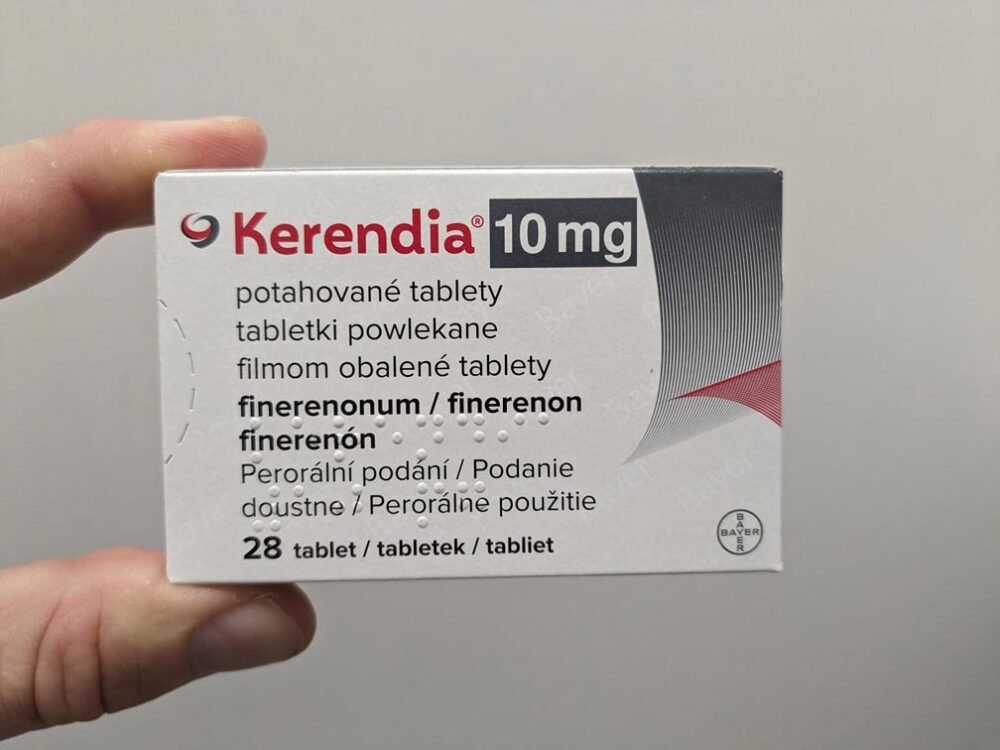Advertisment
Bayer files for approval of finerenone in heart failure in Japan

Bayer announced the submission of a marketing authorization application to the Ministry of Health, Labour, and Welfare (MHLW) in Japan, seeking approval of finerenone in adult patients with chronic heart failure (with a left ventricular ejection fraction (LVEF) of ≥40%, i.e. mildly reduced LVEF (HFmrEF) or preserved LVEF (HFpEF)).
Finerenone is a non-steroidal, selective mineralocorticoid receptor antagonist (nsMRA) and the first drug targeting the mineralocorticoid receptor (MR) pathway that has demonstrated cardiovascular benefits in patients with HF with a left ventricular ejection fraction (LVEF) of ≥40% in a Phase III study (FINEARTS-HF). Finerenone is already marketed as Kerendia or, in some countries, as Firialta and approved for the treatment of adult patients with chronic kidney disease (CKD) associated with type 2 diabetes (T2D) in more than 90 countries worldwide, including in China, Europe, Japan, and the U.S.
“According to estimates, 1.2 million people in Japan are living with heart failure, and 60% of these patients suffer from heart failure with an LVEF of ≥40%, who have a multitude of comorbidities such as hypertension and atrial fibrillation, and a high risk for cardiovascular events, providing a significant challenge for their treating physicians,” said Christine Roth, Executive Vice President, Global Product Strategy and Commercialization and Member of the Pharmaceuticals Leadership Team at Bayer. “As physicians navigate the complexities of multiple comorbidities, at the same time they are facing a lack of proven treatment options, limiting their ability to help these patients. Finerenone, if approved, has the potential to become a new pillar of treatment for this common form of heart failure, alleviating the burden of serious outcomes in an underserved patient population.”
Heart failure (HF) is a rapidly growing public health issue affecting over 60 million people worldwide. It is the leading cause of hospitalization in people over 65. An estimated 1.2 million people in Japan are affected. As the population ages, the number of patients with HF in Japan continues to increase and is estimated to exceed 1.3 million by 2030. Approximately 60% of these patients suffer from HF with a LVEF of ≥40%, which is associated with multiple comorbidities, making the condition complex to manage.
By targeting MR and renin-angiotensin-aldosterone system (RAAS) overactivation, finerenone addresses key aspects of HF with an LVEF ≥40%, including hemodynamic factors and inflammatory and fibrotic processes. Results from the Phase III study FINEARTS-HF demonstrate that compared to placebo, finerenone showed a statistically significant improvement in cardiovascular outcomes in patients with heart failure (HF) and a left ventricular ejection fraction (LVEF) of ≥40%.
The submission of finerenone to the MHLW is based on positive data from the Phase III FINEARTS-HF study, which is part of MOONRAKER, one of the largest Phase III clinical trial programs to date in HF with more than 15,000 patients in total, aiming to establish a comprehensive understanding of finerenone in HF across a broad spectrum of patients and clinical settings. Finerenone has also been submitted for marketing authorization in this common form of heart failure in China, the EU, and the U.S., and these applications are currently under review. Further regulatory applications to health authorities in other markets worldwide will follow.
FINEARTS-HF is a randomized, double-blind, placebo-controlled, multicenter, event-driven Phase III study investigating the efficacy and safety of finerenone (Kerendia) for the prevention of cardiovascular death and heart failure (HF) events in patients with a diagnosis of symptomatic heart failure (New York Heart Association class II-IV) with a left ventricular ejection fraction (LVEF) of ≥40%, measured by any modality within the last 12 months as well as receiving diuretic treatment for at least 30 days prior to randomization. The primary endpoint of FINEARTS-HF was the composite of cardiovascular death and total (first and recurrent) HF events, defined as hospitalizations for HF or urgent HF visits.
Around 6,000 patients were randomized from more than 630 sites across 37 countries worldwide to receive either finerenone or placebo once daily. In addition, patients in the study received usual therapy to treat symptoms and comorbidities.
With overall more than 15,000 patients, the ongoing MOONRAKER clinical trial program with finerenone, including FINEARTS-HF, is one of the largest HF study programs to date, and aims to establish a comprehensive understanding of finerenone in HF across a broad spectrum of patients and clinical settings.





